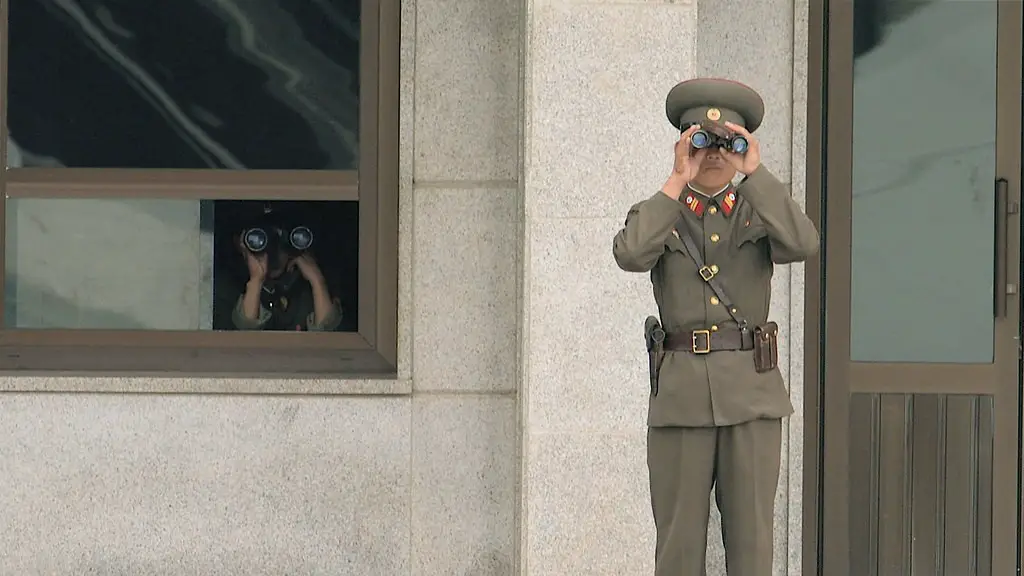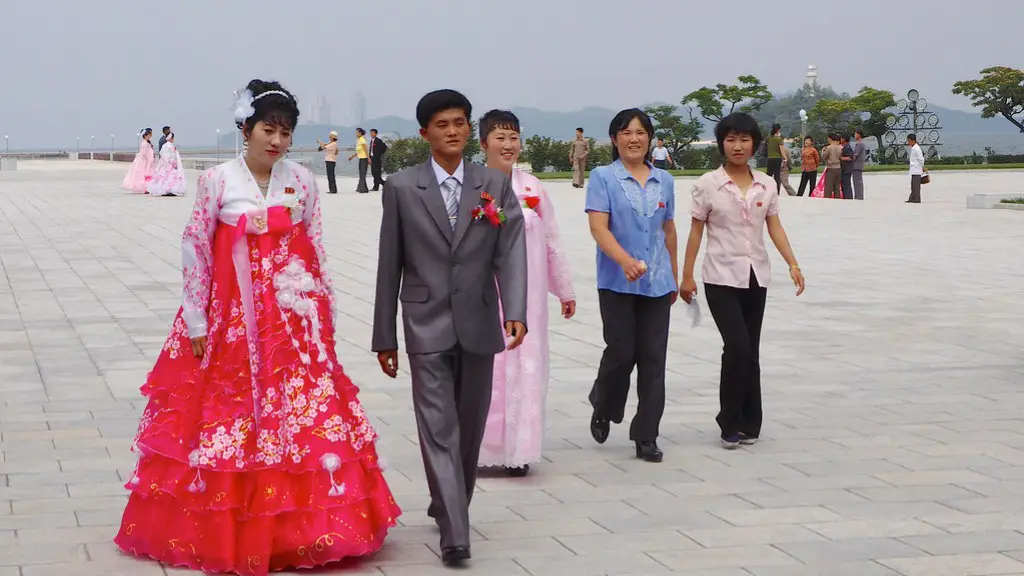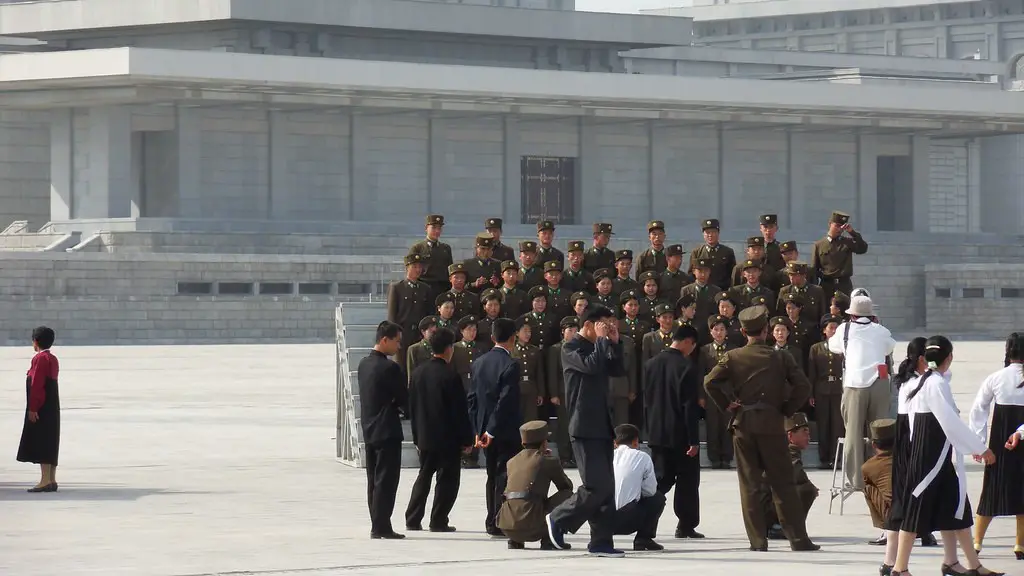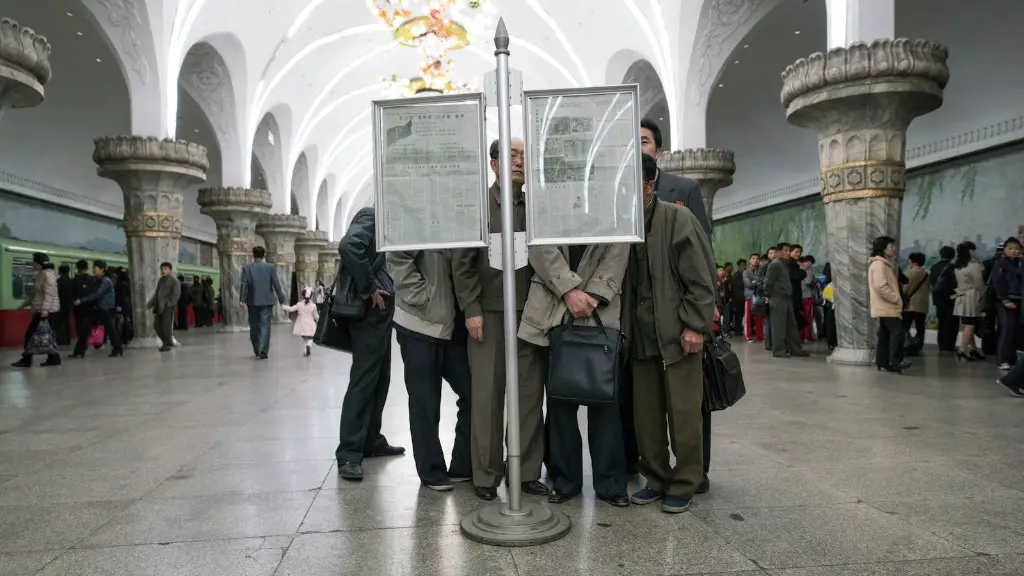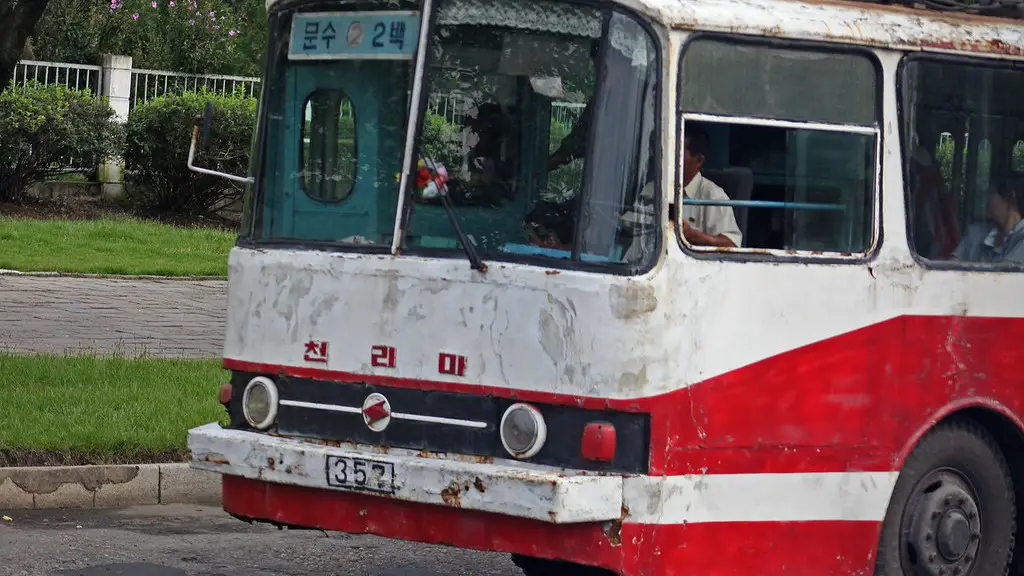What would a war with North Korea be like? Analysts have long warned of the devastating consequences the world could face if a military conflict were to break out between the two nations, yet details on that scenario are often hard to come by. So what could a war with North Korea actually look like, and what effects might it have?
To begin with, a conflict would almost certainly be extremely intense and unpredictable. North Korea possesses a range of deadly weapons, including nuclear warheads, medium and long range missiles, and a large arsenal of chemical weapons. A U.S. strike on North Korea would likely spark a retaliatory response from the country in the form of rocket attacks. On the other hand, a U.S. ground invasion would have to make its way through North Korea’s heavily fortified border, likely resulting in high casualties on both sides.
For the U.S. and other nations, a conflict with North Korea could have severe economic consequences. A global economic recession as a result of a North Korean crisis could have far-reaching effects, particularly if it were to cause a spike in oil prices. It could also spark further instability in the region due to new refugee flows and the potential for North Korea to launch retaliatory attacks against its neighbors.
The threat of a North Korean nuclear attack is also a major concern. North Korea is one of the few countries which still actively develops nuclear weapons. In the event of a conflict with the U.S., it is believed that the country would use its arsenal as a last resort. In light of this possibility, the U.S. and its allies have taken steps to arm themselves with defensive systems such as the Terminal High Altitude Area Defense (THAAD) system.
From a humanitarian point of view, a conflict would cause immense suffering to the North Korean people. North Korea is subject to one of the most oppressive regimes in the world and any conflict would act as an accelerator of already existing rights abuses. Access to food, medical supplies, and shelter would be denied to many North Koreans, leading to a rise in deaths from starvation and other preventable illnesses.
Lastly, a war with North Korea would come with a great cost to the environment. The country’s nuclear weapons program has polluted large areas of land and water, and any conflict would only add to the destruction. Additionally, air pollution from the firing of missiles and heavy bombing would cause large amounts of dust and smoke to spread, leading to an increase in respiratory illnesses and other health complications.
Outcomes of a Conflict
The outcome of a conflict with North Korea would likely have far-reaching consequences. In the short-term, it is possible that a conflict could result in the overthrow of the North Korean dictatorship and the end of the Kim regime. In this case, the world would have to address the immense humanitarian crisis created by the destruction of the country, as well as the potential for other nations to take advantage of the situation.
On the other hand, it is also possible that a conflict could result in a stalemate, with negotiations between the two sides leading to a potentially long and drawn-out peace process. This process would require both sides to make significant concessions and could lead to a permanent division of the Korean peninsula.There is also the possibility that the conflict could result in a resolution involving some form of reunification between the two countries.
Ultimately, it is difficult to predict exactly how a conflict between the U.S. and North Korea would play out, but it is clear that it would have significant consequences for both the region and the world at large.
Diplomacy
Given the potential devastation of a conflict, it is crucial that both the U.S. and North Korea take steps to pursue diplomacy in order to avoid a war. Fortunately, there have been some signs of progress over the past few years, with North Korea making a commitment to denuclearization, a halt to its ballistic missile tests, and the signing of a historic peace agreement with South Korea.
However, more needs to be done in order to create a lasting peace. The U.S. and North Korea need to continue to engage in dialogue in order to build trust and cultivate a genuine understanding between the two sides. This includes ensuring that both countries are open to compromise in order to foster further progress in their relationship.
Additionally, other countries such as China, Russia, and South Korea can play an important role in diplomacy. These countries are in a unique position to foster negotiations between the two nations, as well as provide economic incentives for North Korea to continue pursuing a peaceful resolution.
International Support
International support for a diplomatic solution to the crisis is also essential. The world must come together to support the efforts of the U.S. and North Korea to find a peaceful resolution. This can take the form of both financial and material aid to ensure that the two sides are able to make concessions and reach an agreement.
Moreover, the international community needs to make clear its opposition to a war with North Korea. Many political and military leaders have already called for peace and diplomacy instead of conflict. This stance of opposition must be maintained in order to deter any thoughts of war by either side.
The persistence of the international community is pivotal in the efforts towards peace in the Korean peninsula. If the world comes together and provides support for both the U.S. and North Korea, then the chances of a diplomatic solution become much greater.
Demilitarizing
Finally, there is the process of demilitarizing the Korean peninsula. This process is crucial for the long-term success of a peaceful resolution and would involve the U.S. and North Korea working together to reduce their military presence in the region and dismantle any nuclear weapons held by either side.
The process of demilitarization would also need to be accompanied by steps to boost economic ties between the two countries. This would involve establishing links between their respective economies and introducing measures to promote increased trade between the two sides.
If the U.S. and North Korea can work together to reduce their military presence in the region and establish stronger economic ties, then it is possible that a lasting peace will be achieved and the war with North Korea is avoided.
North Korean People
It is also important to recognize the plight of the North Korean people, who have endured years of human rights abuses and oppressive rule. Any diplomatic resolution must take into account their needs and strive to promote greater freedoms for the North Korean population.
This would involve ensuring that the North Korean government is more accountable to its people by introducing measures such as free and fair elections, increased access to media and information, and the establishment of an independent judiciary. Additionally, efforts must be undertaken to ensure that the North Korean people are protected from any potential harm in the event of a conflict, including by providing access to food, water, and medical supplies.
Conclusion, or Lack Thereof?
In conclusion, a war with North Korea would have devastating consequences for the region and the world, and is something that must be avoided at all costs. To this end, both the U.S. and North Korea need to continue to pursue diplomacy, with support from the international community, in order to find a peaceful resolution. The process of demilitarizing the Korean peninsula is paramount to a successful outcome, as is ensuring that the needs of the North Korean people are taken into account. While the path to peace may be difficult, it is essential that both sides remain committed to this goal in order to ensure that a war with North Korea is averted.
